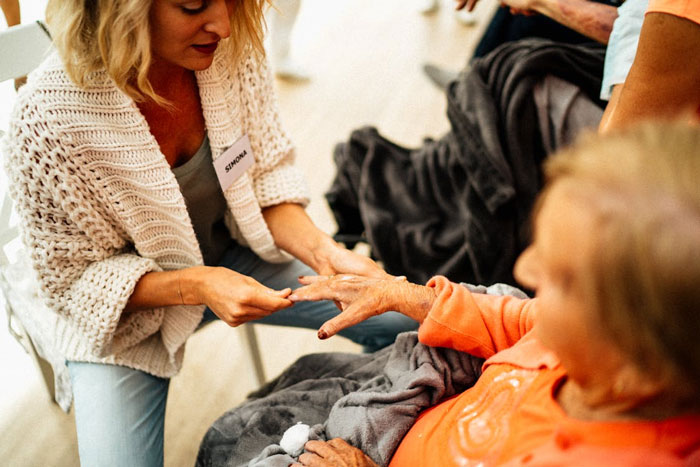
This post provides detailed information on the geriatric nursing assistant job description, including the key duties, tasks, and responsibilities they commonly perform.
It also presents the important requirements you may be expected to meet to be hired for the geriatric nursing assistant role by most employers.
A geriatric nursing assistant is a caregiver who takes care of elderly people in nursing homes and rehabilitation centers.
The geriatric nursing assistant job description entails catering to elderly folks, providing them with maximum care for a comfortable life in their old age.
Due to their age, elderly people may experience difficulty in moving all by themselves, therefore, geriatric nursing assistants are needed to be on standby to assist them in moving from one place to another, to avoid accidents of falling down and injuring themselves.
Part of the nurse assistant’s role in taking care of the elderly, includes making sure that the patient is kept clean at all times. The personal hygiene of the elderly should be given utmost attention.
Therefore, the duties and responsibilities of the assistant will include bathing the patient, wearing them clean clothes, washing their bedspread, and changing them constantly. When patients mess themselves up, the assistant is expected to take their time to clean them up.
As a caregiver, the assistant to the geriatric nurse is trained to know that the elderly needs food for a strong and healthy body, thus, he/she will have to take it upon themselves to observe the patient’s eating habit and ensure that they follow a rich diet as prescribed by the nursing staff.
Other duties include making sure that meals are served as at when due, and motivating the patient to eat even when they don’t have the appetite. It may also involve feeding the patient when they cannot feed themselves.
Geriatric Nursing Assistant Job Description Example, Duties, Tasks, and Responsibilities
The major duties, tasks, and responsibilities of most geriatric nursing assistants are shown in the job description example below:
- Prioritize safety of the elderly by ensuring that the environment where they are kept is conducive and free from any harm
- Ensure that the rooms are made as spacious as possible
- Take away objects that could obstruct movement or cause injuries in the event of an accident
- Keep the floor dry at all times to avoid tripping and falling to the ground
- Create games and motivate patients to get involved in them to keep their minds active, and also to improve their mental strength
- Develop and participate in recreational activities with patients, ensuring that they have a good time, and that they are engage actively without feeling bored and exhausted
- Read patients’ favorite books to them, upon their request, to help them relax
- Assist nursing staff in carrying out routine checkups on patients by examining their temperature, blood pressure, and sugar level for normalcy, and work towards stabilizing them when they are above the normal standard
- Keep eye on patients’ behavior, observe any changes in them as a result of decline in their health, and inform the nursing staff about it for proper diagnosis and timely treatment
- Inculcate good posture habit in patients by developing flexible exercise routines and teaching them how to position themselves while seating, standing, sleeping, and walking
- Reposition bedridden patients to give them good posture balance
- Teach patients respiratory exercises to enable them breathe freely without hiccups resulting from old age
- Maintain good relationship with contacts of patients to identify best ways to make patients comfortable and happy
Geriatric Nurse Assistant Resume Preparation
In preparing a resume to be used in seeking the job of an assistant in geriatric nursing service, the sample job description shown above for the post can be employed in writing the work experience section of the resume.
Requirements – Skills, Knowledge, and Abilities – for the Post of Geriatric Nursing Assistant
The skills, abilities, and knowledge base usually required by employers from applicants vying for the geriatric nursing assistant job usually include the following:
- License: To be eligible for this job, one must obtain a nursing license from the board of nursing, having completed relevant courses at recognized and approved institutions
- Listening skills: Ability to listen attentively is essential in understanding patients’ feelings and needs at a particular point in time
- Interpersonal skills: You need to develop a personal relationship with patients in order to make them comfortable around you and to interact freely with you
- Organizational skills: This is key in scheduling activities and keeping the environment in order for patients’ safety
- Must be well knowledgeable about educational and social activities for the elderly.




